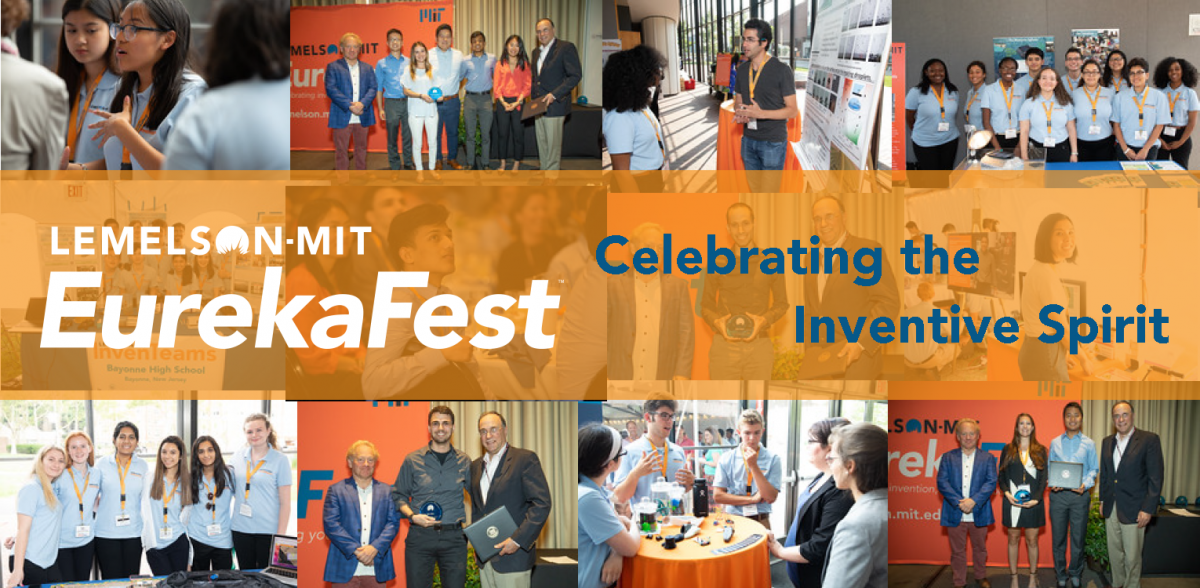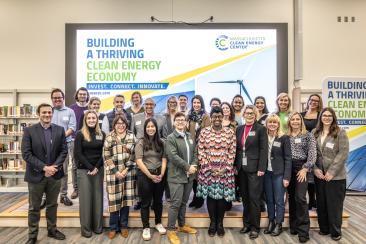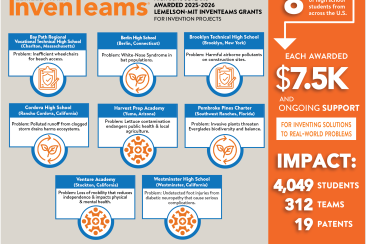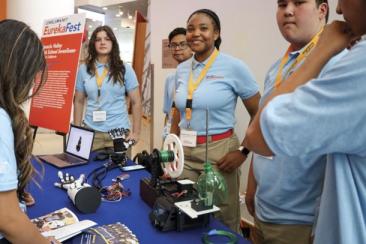13th Annual EurekaFest Event Celebrates Student Inventors

Inventions that enable fresh food production, address gaps in rural healthcare and improve safety of firefighters are just some examples from EurekaFest.
Today, the Lemelson-MIT (LMIT) Program hosts its 13th annual EurekaFest event that showcases novel products developed by high school students and serves as an example of the impact of invention education. Fifteen student teams from across the U.S., including first time representation from Kentucky and South Carolina, are convening on the MIT campus to demonstrate working prototypes of inventions that address community-based problems. EurekaFest is an annual culmination of the Lemelson-MIT Program’s unique InvenTeams® initiative that increases the value of science, technology, engineering and math (STEM) curriculum. The showcase opens tomorrow from 2 to 5 PM in the Stata Center on the MIT campus (Building 32).
“EurekaFest demonstrates the power of invention education to change the way students see themselves, engage in the community and think about their futures,” notes Stephanie Couch, executive director for LMIT. “InvenTeam participants are over 40 percent female and many InvenTeam students have gone on to pursue STEM degrees and career paths that have put them well on their way to becoming the change agents of the future.”
For many participants, InvenTeams is their first exposure to a real-world application of STEM knowledge and design thinking. The InvenTeams experience cultivates the skillsets and mindsets that are critical for helping students navigate an evolving economy and career landscape.
Lemelson-MIT InvenTeams, one of the first invention education programs in the U.S., gives students the opportunity to solve real-world challenges they find meaningful. Over the course of an academic year, students research intellectual property, exchange ideas, design parts, talk with people in their local communities, build models and make modifications as they develop working prototypes of their inventions. Students cultivate leadership as well as technical skills though the team-based, year-long initiative as they address challenges and celebrate progress. Projects are collaborative efforts, driven by the students with guidance from their educator and professionals in the field who serve as mentors. The InvenTeam initiative fosters a “learning-by-doing” team environment fueled by inquiry-based thinking.
Published research indicates women and students from underrepresented backgrounds, benefit from team-based learning environments and a focus on real-world problem solving with the support of educators and mentors. As a result, InvenTeams has demonstrated success in inspiring and engaging these students to pursue STEM careers.
“For many of my students, the InvenTeams experience was their first exposure to the practical application of science, math and engineering,” said Katrina Hull, lead educator of Mckay High School InvenTeam in Salem, Oregon. “As a result, students who hesitated at the idea of a STEM career or weren’t aware of the pathway are now enthusiastic about becoming engineers and are actively choosing, math, science and engineering classes.”
The Lemelson-MIT Program annually offers InvenTeam grants of up to $10K each for 15 teams of high school students, educators and mentors from across the U.S. To be eligible, teachers must first apply and be selected as an Excite Award recipient prior to submitting their invention proposal for a grant.





